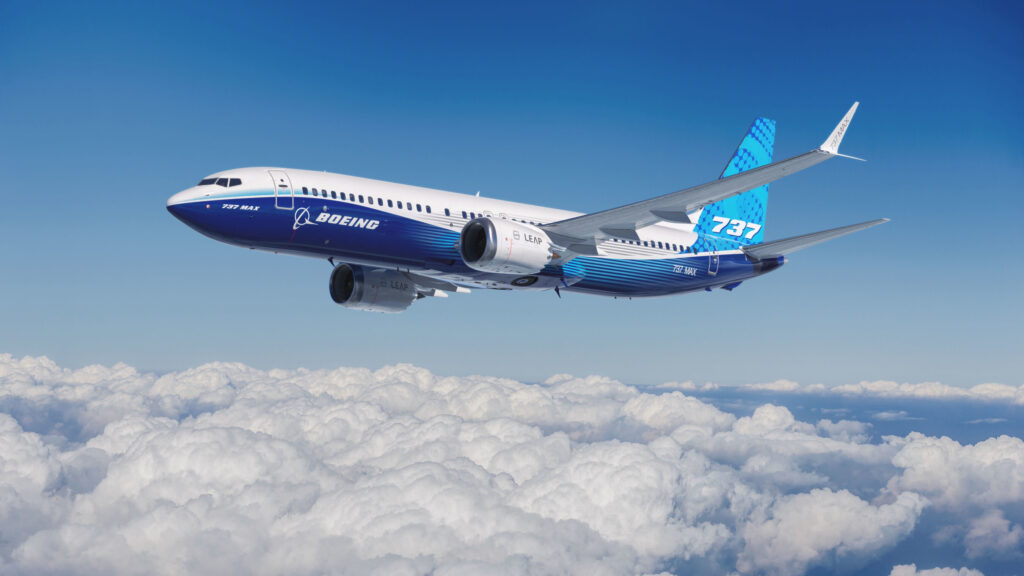Boeing narrowbody customers will have a slight bump on the road, as the OEM has notified the regulators about an issue that could exist with a few of their Boeing 737 aircraft.
The Boeing 737 Rudder Issues
Late in September 2024, the National Transportation Safety Board (NTSB) issued urgent safety recommendations to Boeing and the Federal Aviation Administration (FAA) regarding the potential for a jammed or restricted rudder control system on some 737 airplanes.
The NTSB is investigating a February 6, 2024, incident in which the rudder pedals on a United Airlines Boeing 737-8, a MAX variant, were “stuck” in their neutral position during the landing rollout at Newark Liberty International Airport. There was no damage to the airplane or injuries to the 155 passengers and six crewmembers.
NTSB investigators tested one of the rudder control components from the incident airplane, a rollout guidance actuator, at the component’s manufacturer, Collins Aerospace. When the incident actuator and an identical unit from another airplane were tested in a cold environment, the actuators’ function was significantly compromised.
Investigators found evidence of moisture in both actuators, which failed testing. Collins Aerospace subsequently determined that a sealed bearing was incorrectly assembled during production of the actuators, leaving the unsealed side more susceptible to moisture that can freeze and limit rudder system movement.
Collins notified Boeing that this condition affected more than 353 actuators that Collins had delivered to Boeing since February 2017.
The rudder rollout guidance actuator, installed in the tail of some B-737NG and 737MAX airplanes, is designed to control the rudder’s movement during category IIIB approach, landing and rollout operations. Although not used in non-precision landings, the actuator remains mechanically engaged with the rudder system.

Indian Regulator, DGCA, steps in
Today, India’s aviation regulator, DGCA, notified steps for the Indian airlines to assess their affected operations. The regulator has asked operators using Boeing 737s equipped with the affected Collins Aerospace manufactured rudders to stop low-visibility CAT IIIB landings on these planes, besides conducting risk assessment and special rudder control training for pilots.
In India, three airlines operate Boeing 737 / MAX aircraft: SpiceJet, Air India Express, and Akasa Air. SpiceJet has confirmed that they do not have aircraft equipped with said actuator, while Air India Express has five such aircraft.
Update: AIX has five planes with the specific rudder actuator.
Spice- Zero
Akasa- yet to reply to query https://t.co/8byUyMBnHl— Jagriti Chandra (@jagritichandra) October 7, 2024
As per a statement issued by the DGCA,
All Category III B approach, landing, and rollout operations (including practice or actual autoland) must be discontinued for airplanes until further notice. Discussion about potential rudder control system issues must be included as a mandatory topic in recurrent training sessions and instrument rating/proficiency checks (IR/PPC) during pre-simulator briefings. Operators have been instructed to include specific exercises that simulate scenarios involving a jammed or restricted rudder control system. Appropriate flight crew responses and mitigations should be practiced during these exercises.
It will be easy for airlines to manage the issue if they ensure their aircraft fitted with the specific equipment from Collins Aerospace don’t come the way of New Delhi or other north Indian airports during the fog season.
Bottomline
A component fitted in over 300 Boeing 737 / 737 MAX aircraft seems to have issues, as discovered by the NTSB. Some of these aircraft are also operated by carriers in India. As for now, the airlines have been told not to go for automated landings during the cold/fog seasons in India. A more comprehensive fix, though, is awaited.
What do you think of the current issues with the Boeing 737 aircraft?
Liked our articles and our efforts? Please pay an amount you are comfortable with; an amount you believe is the fair price for the content you have consumed. Please enter an amount in the box below and click on the button to pay; you can use Netbanking, Debit/Credit Cards, UPI, QR codes, or any Wallet to pay. Every contribution helps cover the cost of the content generated for your benefit.
(Important: to receive confirmation and details of your transaction, please enter a valid email address in the pop-up form that will appear after you click the ‘Pay Now’ button. For international transactions, use Paypal to process the transaction.)
We are not putting our articles behind any paywall where you are asked to pay before you read an article. We are asking you to pay after you have read the article if you are satisfied with the quality and our efforts.


Leave a Reply